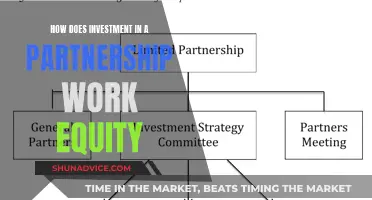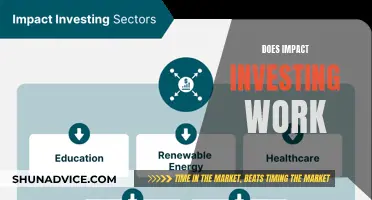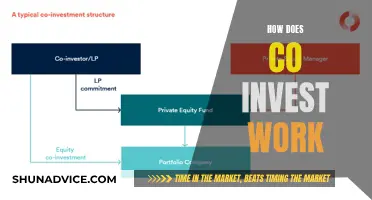
Florida is a popular choice for those looking to invest in property, whether as a holiday home or a straight investment property. The state boasts warm and dry weather, offering an escape from the bitter cold of winter in places like the UK. Florida is also home to several big theme parks, including Disney World, making it ideal for families.
The Florida real estate market is currently one of the most profitable in the US, with a median property price of $625,492. The state's economy is expected to continue flourishing in 2023, despite rising home prices.
If you're considering investing in Florida, it's important to keep in mind that the location of your property will determine your long-term financial potential. While prices tend to be lower in the north, the southeast Atlantic coast—including Miami, Fort Lauderdale, and Palm Beach—tends to be pricier.
When it comes to timing, the best month for low listing prices in Florida is typically October, while December offers the highest housing inventory. If scoring a low mortgage rate is your priority, January is usually the best month to buy.
What You'll Learn

The Florida Housing Market
The Florida real estate market is currently one of the most profitable in the US, with the state offering a lucrative return on investment. The demand for housing in the state has been fuelled by its warm climate, relaxed lifestyle, tourism, and attractive tax laws.
When to Buy
The best month to buy a house in Florida for a low listing price is October. In recent years, prices for homes in Florida have been the lowest in October, with homes $36,617 less expensive than the average listing price.
If you have a wide range of housing options as your priority, December is the best month to buy. You'll likely find the highest number of listed homes in December and may be able to negotiate the price of a property.
Where to Buy
The southeast Atlantic coast, encompassing Miami, Fort Lauderdale, and Palm Beach up to Orlando, tends to be pricier than the southwestern Gulf coast. This stretch includes some of the priciest residences in America, with multi-million-dollar homes. However, it is still possible to find a three-bedroom, single-family home with a pool for around the $250,000 mark.
The Miami property market is unique, with typical apartment prices starting at around $300,000. Miami has seen an influx of buyers from Latin America, and inventory is now fairly low, pushing prices up. However, it is still possible to get deals on condos, as this market experienced a construction boom.
Central Florida, from Orlando to the Tampa region, is currently the hottest market, with returns yielding on average 8-12%. This area benefits from massive tourism potential due to the presence of Disney, Universal, and Sea World, offering excellent potential for returns from tourism rentals.
Benefits of Buying Property in Florida
Florida offers relatively affordable rental property prices, with a high demand for housing. The state also provides opportunities for development, with a range of investment strategies to choose from, such as vacation homes or traditional rentals.
Downsides of Buying Property in Florida
It may be more difficult to get a mortgage loan in Florida than in some other states. Additionally, the location of your property is essential, and choosing the wrong area may drag down your investment business.
Rental Strategies
When deciding where to buy a house in Florida, consider the rental strategy you want to adopt. Each place is associated with a particular optimal rental strategy, such as Airbnb rentals or traditional rentals.
For example, Briny Breezes, Weeki Wachee, and Springfield are good locations for Airbnb rentals, while Tarpon Springs, Miami Gardens, and Orlando are better suited for traditional rentals.
Unlocking Tax-Free Retirement: The Power of Roth Accounts
You may want to see also

Location, location, location
When it comes to investing in Florida property, location is key. The Sunshine State offers a range of options, from the bustling cities of Miami and Orlando to the tranquil Gulf Coast. But with each area offering its own unique advantages, how do you choose the right location for your investment?
Tourist Hotspots
For those looking to cater to tourists, Central Florida is the place to be. With world-famous attractions like Disney World, Universal, and Sea World, this area is a magnet for holidaymakers. As a result, property prices tend to be higher, but so is the potential for rental income.
The Southeast Atlantic Coast
The stretch of coastline from Miami to Palm Beach, including Ft Lauderdale, is known for its high-end residences and sky-high property prices. However, it is still possible to find more affordable options away from the ultra-rich enclaves. Miami, in particular, has seen an influx of buyers from Latin America, driving up demand and prices.
The Gulf Coast
The southwestern Gulf coast, including Naples and the Tampa region, is a favourite among the wealthy, offering a quieter and more relaxed pace of life. Waterfront properties here can be more than double the price of comparable properties in Orlando. However, prices tend to be lower than in the southeast, and strong rental demand from European and American holidaymakers in the summer months makes this a great option for investors.
The North
For those seeking a more affordable option, the north of Florida offers lower prices, although this may come at the cost of rental demand. This area is further from the major tourist attractions and the buzz of the cities, but it can still be a great choice for those looking for a holiday home or a quieter lifestyle.
The Right Location for You
When choosing a location, it's important to consider your rental strategy and the type of tenants you want to attract. Don't forget to think about your own enjoyment of the property too. With a range of resorts and neighbourhoods to choose from, each with its own unique charm, Florida has something to offer everyone.
Remember, the location you choose will have a significant impact on your long-term financial potential, so be sure to do your research and seek expert advice if needed.
Who Really Knows How to Invest?
You may want to see also

Property maintenance and management
Choosing a Property Manager
The right property manager can be essential to the success of your investment. Florida Property Management .com, for example, connects property owners with qualified companies in their local market. They have over 15 years of experience in the real estate and property management industry.
There are many property management companies to choose from in Florida, and it is important to find one that suits your needs. You can search for companies in your local area and compare their services and pricing. Getting a free quote can help you make an informed decision.
Understanding Contracts
When investing in Florida property, it is important to understand the different types of contracts involved. There are two main types of contracts in Florida property purchases: the standard contract and the "As-Is" contract.
The standard contract states that any problems found within the property should be dealt with by the seller. On the other hand, the "As-Is" contract gives the buyer more flexibility, as it does not obligate the seller to fix any issues found in the property report.
Landlord and Tenant Laws
If you plan to rent out your investment property to tenants, it is crucial to understand the landlord and tenant laws in Florida. These laws cover various areas, including rental applications, security deposits, leases, rent, and late fees. For example, landlords in Florida can take advantage of loose restrictions on raising rents, but they must also adhere to specific laws regarding lease termination, eviction, and entry into the property.
Property Maintenance and Repair Laws
As a landlord, you are responsible for maintaining a habitable property for your tenants. This includes providing clean, safe common areas, garbage removal receptacles, heat during the winter, running water, and hot water. You are also responsible for maintaining electricity, plumbing, heat, and property improvements.
Tenants are responsible for any repairs caused by their own neglect. If you fail to perform necessary repairs, tenants have the right to withhold rent or even terminate the lease and vacate the premises.
Non-Resident Status
If you are a non-resident of the United States, there are a few differences to keep in mind when purchasing property in Florida. It can be difficult for non-residents to obtain a mortgage, so you may need to rely on your own funds when investing in property. Additionally, in the case of a property sale by a non-resident, the buyer is required to withhold 15% of the total property cost for the FIRPTA tax.
Additional Utilities
When buying a property in Florida, be aware that additional utility costs may apply. If you purchase a property that is part of a residential community with amenities like a swimming pool or gym, you will be responsible for maintenance fees, which can start at $200 per month.
Investment Swindled: Navigating the Aftermath and Seeking Justice
You may want to see also

Contracts and their types
When investing in Florida, it's important to be aware of the different types of contracts that may be involved. In the US, a contract is a formal, legally binding agreement between parties, creating mutual obligations that are enforceable by law. Here are some common types of contracts you may encounter:
Standard Contract vs "As-Is" Contract
In Florida, there are two main types of contracts used in property purchases: the standard contract and the "as-is" contract. The standard contract states that any problems found within the property are the responsibility of the seller to fix. On the other hand, the "as-is" contract does not obligate the seller to address any issues found in the property report, giving the buyer more flexibility to back out of the deal.
Fixed-Price Contract
Fixed-price contracts, also known as lump-sum contracts, are commonly used when the scope of a project is well-defined. In this type of contract, the buyer and seller agree on a set price for the goods or services to be exchanged. This approach simplifies the agreement process and provides budget predictability for the buyer.
Cost-Plus Contract
Cost-plus contracts, also known as cost-reimbursement contracts, are used when the scope of work is uncertain or difficult to estimate accurately. In this case, one party is paid for all expenses incurred while completing the project, plus an additional fee. This type of contract is common in construction and industries with unpredictable raw material costs.
Time and Materials Contract
Time and materials contracts are often used in construction projects and labour-intensive industries. In this type of contract, one party agrees to pay a fixed amount for each hour of labour and the cost of materials. While this approach is simple, it can lead to high project costs for the customer if the project runs over the expected timeframe or requires more materials.
Unit Pricing Contract
In a unit pricing contract, the contractor provides a set price for each unit or segment of work completed. This approach is well-suited for projects with easily measured, repetitive tasks, enhancing transparency and accountability in cost allocation.
Unilateral Contract
Unilateral contracts involve an offer by one party, with the other party only receiving payment after performing the specified actions within the contract. This type of contract is one-sided, with only one party having an obligation.
Bilateral Contract
Bilateral contracts are similar to unilateral contracts but involve both parties agreeing to perform something for each other. Each party has reciprocal obligations to the other, creating a mutual exchange of commitments.
Simple Contract
Simple contracts are oral or written agreements that are not legally recorded or sealed. These contracts may or may not be legally binding, and breaches may be ruled on by a court. Simple contracts are generally better suited for minor agreements.
Implied Contract
Implied contracts are derived from the actions or circumstances of the parties involved, without a written or oral agreement. An example is when you order a round of drinks at a bar; there is an implied agreement to pay for what you ordered.
Express Contract
Express contracts are those that two or more parties willingly agree to, either verbally or in writing. Express contracts clearly define the terms of the agreement, and all parties are aware of their commitments. These contracts are legally binding, and courts may rule on breaches of contract.
Unconscionable Contract
Unconscionable contracts are considered unfair or abusive to one party. They are often deemed unenforceable due to unfair bargaining practices or unfair substantive terms.
Silver Investment: Shine or Shyster?
You may want to see also

Expert advice
The Florida Housing Market
The Florida real estate market is currently one of the most profitable and attractive investment markets, with a high return on investment. This is due to a number of factors, such as the warm climate, tourism, and attractions like Disney World. The demand for housing in Florida has increased due to the rise of remote work, with the average cost of housing in the state growing by over 30% from 2020 to 2022.
Location
The location of your investment property is just as important as the property itself. Central Florida, for example, is a good choice for those looking to be close to tourist destinations like Disney World. The southeast Atlantic coast, including Miami, Ft Lauderdale, and Palm Beach, tends to be pricier than the southwestern Gulf coast. However, it is still possible to find more affordable properties in these areas if you choose wisely and avoid the ultra-rich enclaves.
Property Maintenance and Management
When investing in Florida properties, you need to consider who will take care of property maintenance and management. If you plan to rent out the property, you will be responsible for addressing any queries or issues that tenants may have and ensuring the property is well-maintained.
Contracts
There are two types of contracts in Florida property purchases: the standard contract and the "As-Is" contract. The standard contract states that the seller is responsible for dealing with any problems found within the property. On the other hand, the "As-Is" contract does not obligate the seller to fix any issues, and the buyer has more flexibility to back out of the deal.
Timing
The best time to buy a house in Florida depends on your priorities. If you are looking for low listing prices, October tends to be the best month, while December is ideal for finding a wide selection of houses on the market. Additionally, January is the best month for scoring low mortgage rates.
Expert Consultancy
With so many factors to consider when investing in Florida properties, it is recommended to seek the services of professional real estate experts who are familiar with the local market and can help you navigate the complexities of the process.
Retirement Planning for Dentists: Securing Your Golden Years
You may want to see also
Frequently asked questions
October is the best month for low listing prices in Florida. In recent years, prices for homes in Florida have been the lowest in October. On average, homes are $36,617 less expensive than the average listing price.
December is the best month for housing inventory in Florida. You'll likely find the highest number of listed homes in December and might have better luck negotiating the price of a property during this month.
January is the best month for mortgage rates in Florida. In the past year, mortgage rates have been lowest in January, with an average mortgage rate of 6.60% on $399,944 home (average home value in Florida).







